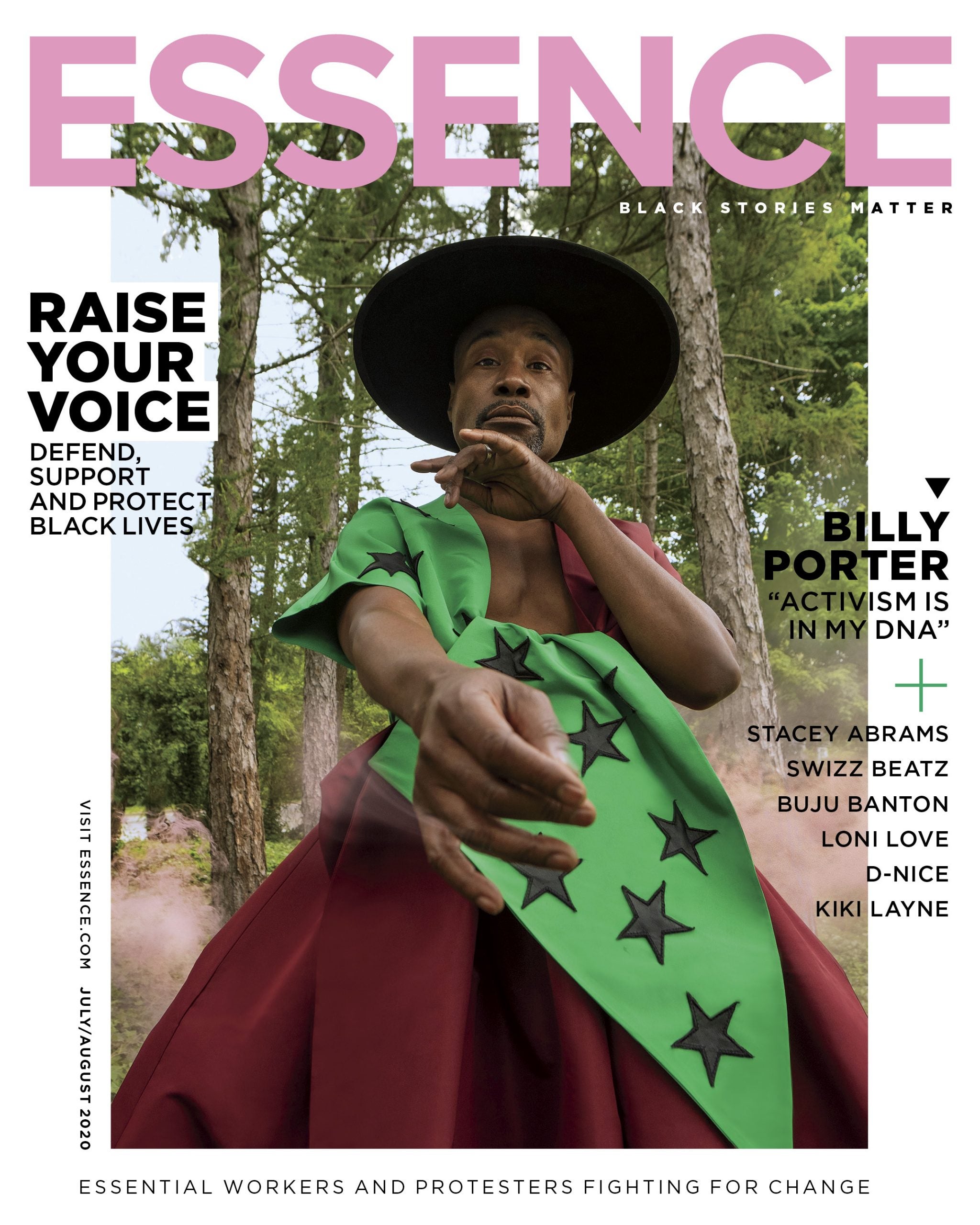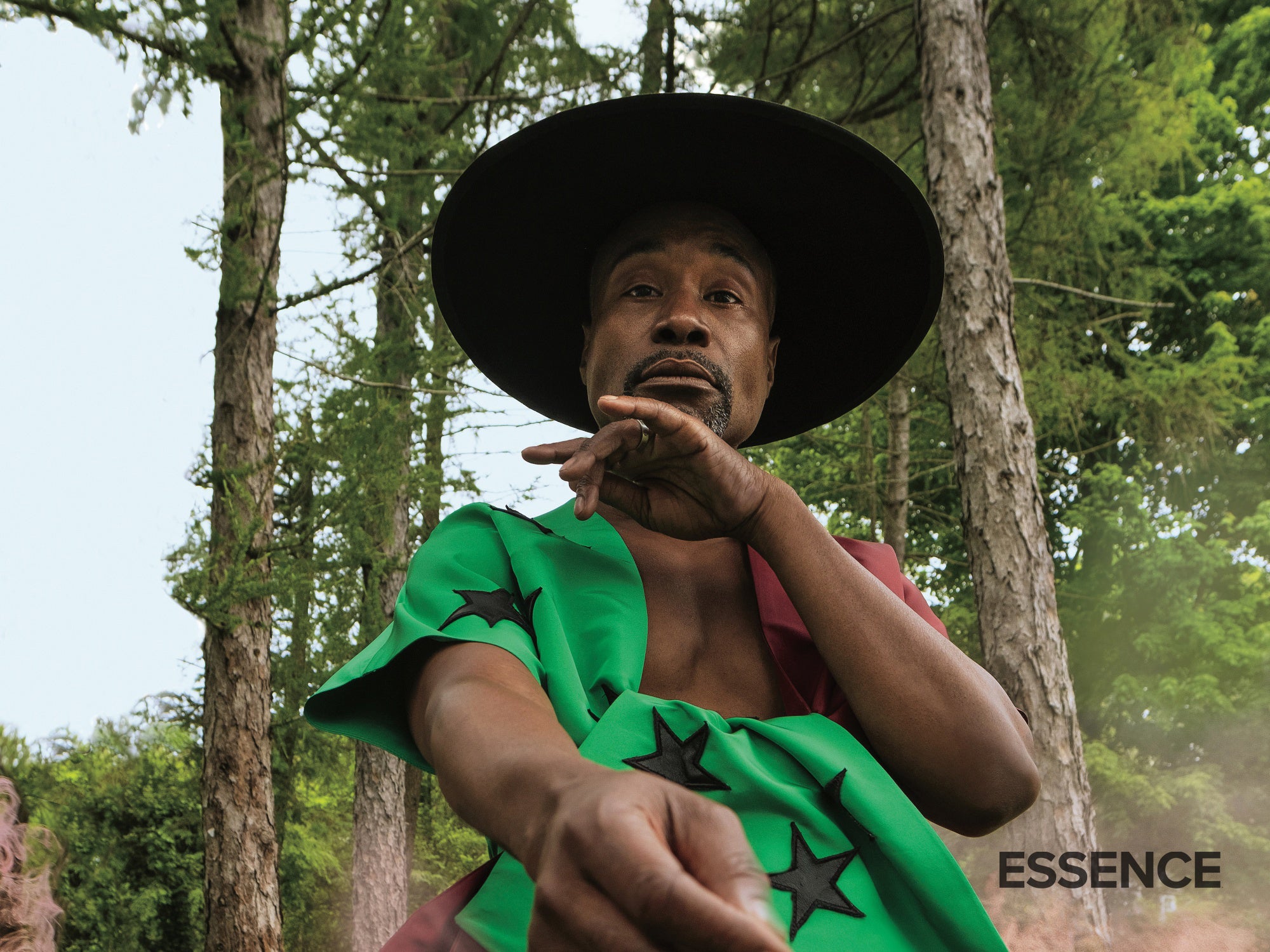The world witnessed in horror the lynching of George Floyd at the hands of a Minnesota cop. Prior to that, we were already enraged about the state and vigilante killings of Breonna Taylor and Ahmaud Arbery, respectively. The people reached a breaking point and the protests peaked during LGBTQ Pride month. A month typically filled with rainbows, parties and raucous celebration was brought back to its roots of the Stonewall Riots, and collided with the outcry to value Black Lives. LGBTQ community and Black community could no longer be discussed as mutually exclusive.
Veteran Black actor and LGBTQ advocate Billy Porter is a reflection of these intersections. His most current role as Praytell on POSE tackles the challenges of Black gay New York in the 80s, a community that often found itself with very few allies in LGBTQ communities and sometimes even less in the Black community, specifically. Black LGBTQ folks have been saying it is all of us or none of us, and finally we’re starting to listen.
It is perfect, then, that Porter graces July/August’s ESSENCE cover.

Alphonso David, the first Black president of the largest LGBTQ advocacy organization in the country, the Human Rights Campaign, expands on the importance of Porter’s visibility, and why the movement for Black lives must be gay and transgender inclusive.
ESSENCE: What do you think about Billy Porter appearing on the cover of ESSENCE magazine during Pride month, but also during a time of significant cultural unrest when people are focused on Black lives?
Alphonso David: Billy Porter is a Black man and Billy Porter is a gay man. Both of these identities matter and are in fact inseparable from our quest for liberation.
Our current struggle to transform policing in this country and get people to finally value Black lives is just as important to the life and safety of a Black LGBTQ person as it is to a non-LGBTQ Black person. But society has created these false constructs to suggest that our goals are separate. They are not. At its core, we are all fighting to make sure we are treated equally under law and with dignity and respect. Further, these struggles are inextricably linked. The modern LGBTQ civil rights movement was birthed due to the tenacity and fortitude of transgender women of color who fought back in the 1950s and 1960s against police brutality and harassment. We are still fighting that battle today. If we are targeted as Black people because of our race, that is often THE dispositive factor. The fact that we are LGBTQ does not make us immune to that oppression. A police officer inclined to attack a Black man does not change his/her/their mind because the Black man is gay, bisexual, transgender or queer. Rather, our sexual orientation and gender identity often compounds the oppression.
Fannie Lou Hamer famously said, “None of us are free until all of us are free.” That principle applies to all of our identities. We cannot create hierarchies of identities in our quest for equality. Otherwise, none of us will be free. If I am oppressed as a Black man, I cannot be free as a gay man and vice versa.
ESSENCE: You represent the largest LGBTQ civil rights organization in the world, the Human Rights Campaign, and you are the first Black man and first person of color to run it. What do you say to those who claim that the LGBTQ rights movement does not represent Black people?
David: The modern LGBTQ movement was started primarily by people of color, but the image today does not reflect that truth. Historically, institutions and movements have not been inclusive or representative of larger society — including HRC — but that does not mean that we should stop fighting for those institutions or movements. We absolutely need diversity in government (from City Hall to the White House), business, education, and the not-for-profit sector.
Our nation was built on systems created to intentionally oppress Black people and people of color — from colonization to slavery to Jim Crow laws and redlining. No institution or movement has been spared. In our history, we have only had one president of the United States who is not a white man. We have never had a woman of color serve as president or vice president. Most of the Fortune 500 companies are run by white men. And most institutions are run by white men and women. But those facts have not and should not deter us from striving to make sure these institutions are more representative of the larger society. The movement for equality, by its very nature, has to be inclusive not only to succeed but to be sustainable.
The fact that we are LGBTQ does not make us immune to that oppression. A police officer inclined to attack a Black man does not change his/her/their mind because the Black man is gay, bisexual, transgender or queer. Rather, our sexual orientation and gender identity often compounds the oppression.
So rather than focus on the past, I am using it to inform the present and future by creating new systems. For example, we recently authored a letter that was signed by more than 800 LGBTQ and civil rights organizations making explicit commitments to embrace anti-racism and end white supremacy, not as necessary corollaries to our missions, but as integral to the objective of full equality for LGBTQ people. Further, we also recently advanced legislative proposals in Congress and issued a letter signed by more than 350 LGBTQ organizations calling for transformational change in policing, including divesting in policing and investing in community services, demilitarizing policing and ending predictive policing.
In short, we all have histories but those histories should not limit our futures. As we move forward, we should first pay homage to the Black queer people who have worked in the movement for decades and the Black volunteers and other people of color who have helped pave the way for change that is happening today.
The movement for equality, by its very nature, has to be inclusive not only to succeed but to be sustainable.
At the Human Rights Campaign, we are intentionally lifting up the voices of people of color. It is our collective responsibility to advance systems that are inclusive, advance priorities that affect the most marginalized, cultivate and support people of color in positions of power and be intentional in center racial justice in our missions.
ESSENCE: How has the focus of the Human Rights Campaign expanded or shifted since you became president of the organization?
David: I assumed the role of president of the Human Rights Campaign in August of 2019 with the explicit goal of centering the organization and the larger movement on people and communities who are multiply marginalized. Specifically, those who are multiply marginalized confront systematic oppression due to more than one part of their identity. For example, a Black transgender woman facing violence, a Latinx lesbian seeking asylum in this country due to persecution in her home country, a Black or Latinx man who is HIV positive with no access to health care.
As a result of this focus, the Human Rights Campaign launched the Transgender Justice Initiative to work with community organizations to address issues affecting the transgender community—ranging from high unemployment to capacity building for leaders, from high rates of violence to negative stereotyping. We expanded our focus on historically black colleges and universities for LGBTQ student leaders seeking support and guidance. We also created an impact litigation unit to better align our resources to defend the rights of LGBTQ people in court.
In late June, we filed our first lawsuit on behalf of two transgender women of color against the Trump administration for removing non-discrimination health care protections for LGBTQ people, and particularly transgender people, under the Affordable Care Act. Their actions are morally wrong and legally indefensible. And we are holding them accountable in court. The judiciary is the check on the legislative and executive branches and the courts have historically been central in our quest for equality. We will continue to engage with the judiciary to protect the rule of law and ensure that it protects all of us, not just some of us.
ESSENCE: You have been the head of the Human Rights Campaign for almost a year, with August being your official anniversary. What has been the response and feedback, given that you are the first person of color to run the organization in its 40 year history?
David: The response to my assuming the role as president of the Human Rights Campaign has been tremendous. Although there are always a few who fear change, the feedback has been overwhelmingly positive. For example, when I assumed the role, I traveled the country to engage with our members and supporters and people of all backgrounds eagerly shared their stories with me. There was and continues to be so much desire for change and progress and so much hope. And to underscore that point, the support for the Human Rights Campaign has been at record levels at all donor levels since I joined the organization.
ESSENCE: Recently, we saw a Black transgender woman attacked by largely Black men during a protest associated with police brutality. What do you say to the larger Black community about this incident and the larger issue of transgender people being attacked?
David: Since 2013, when the Human Rights Campaign started tracking fatalities of transgender people, at least 178 transgender people have been killed and 73% were Black. This year at least 16 transgender people have been killed. Last year at least 27 transgender people were killed. This is a crisis that demands attention not only from elected officials and law enforcement but also from our communities.
We must address our family and friends within our communities who continue to treat our transgender siblings with indifference, fear and sometimes violence. Transgender people are a part of our family, and we must treat them with dignity and respect… Scripture talks about radical love and how God loves all his children. Do the same for those who you interact with. A transgender person is simply trying to live with dignity and does not threaten you as a man, woman or human being. They are entitled to the same rights and privileges that we are fighting for as people of color, as LGBTQ people, as human beings.
We must address our family and friends within our communities who continue to treat our transgender siblings with indifference, fear and sometimes violence.
ESSENCE: If you could imagine the biggest and best impact that the Human Rights Campaign could have on the world, what would that look like?
David: Liberation. Pure, unadulterated liberation. When we can dance freely as if God is not even looking and have no fear and have full protection socially, legally, culturally. When we can live the dream Martin Luther King Jr., James Baldwin, Audre Lourde and others talked about. I want us to get to the place of the afterthought; when we are all treated equally and with dignity and respect.
